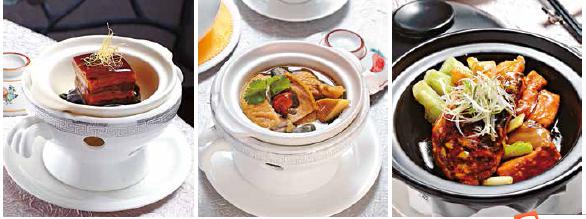Shen Hongfei: Food Writer with Craving
2019-02-25GuoMin
Guo Min


Shen Hongfei (born in 1962 in Shanghai) is a famed food writer. Recently he has visited Hangzhou twice, as testified by his account on social media WeChat. I know because I have been in his private group of friends on WeChat since about a month ago. That is how I see his footprints in Hangzhou by the photos and text messages he posts. Take the two plane trees in front of Carbon French Restaurant on North Hill Road by the West Lake for example. The two trees have appeared frequently in the photos he has posted. In one picture, the two trees are covered by snow. In another, they stand in rain. My guess is that he took the pictures on his way, not to the lakeside fancy French restaurant, but to a small village restaurant somewhere in the valley of Dragon Well, a famous tourist attraction in the mountains west of the West Lake.
Hangzhou is a city Shen Hongfei visits frequently. Many a local restaurant, small in back streets and lanes, advertises itself by posting a concise announcement that Shen Hongfei thinks the noodle we serve is the best in Hangzhou.
Shens endorsement does pull foodies in. In the public eyes, Shen Hongfei is one of the best food writers in China. Shen says modestly that he is no good at cooking and he is by no means a gourmet. However, the restaurants and dishes he recommends are warmly embraced by the public in general and foodies in particular. He admits that he has an unquenchable craving for food. He follows this craving and let the craving motivate him to find best tastes. He is by no means a diner who likes the fancy restaurants. He loves small restaurants hidden in back streets or villages on a citys edge. That is partly how the articles the foodie writes appeal to common readers. Only with such a craving can one understand what he enjoys eating. He loves food and knows how to enjoy food. He writes in an enlightening manner about food and attracts a large following across the country. For him, eating is a private matter, but it can be shared with the public.
Shen takes food seriously. Talking about dinner parties, he says he cautions himself against those who respond to the appointment by offering to bring in a large quantity of wine to the dinner, signifying that these people take wine more seriously than dishes. Some come to a dinner party for purposes that have nothing to do with enjoying food. He has no taste for such dinner parties and does his best to stay away from making friends with such people.
Shen is more than a gourmet. A talented man, he hates being trapped in jobs he dislikes. That is why he went to live in the south and worked for media as a freelance writer. He has worked as a freelance contributor to many media for many years, making him a personality free of various everyday burdens. The life experience makes him write in a free and easy style. While working as a columnist, he earned five yuan per character he wrote, a record unseen before. While he worked as a gourmet, he designed and hosted a few theme banquets in Shanghai. His friends, gourmets and food writers still talk about these memorable events.

S hen H ong fei takes a pictu re while attending a year-end dinner at Huafeng Restaurant in Hangzhou.
Those who have written about the legendary Shen inevitably mention Hangzhou as one of the favorite destinations of Shen. The writer knows without doubt that he loves Hangzhou but has the slightest idea why so. He has designed special dinner menus and theme banquets for some fancy restaurants in the city. And he has a penchant for dishes offered in nondescript restaurants in back streets and lanes in Hangzhou. Now and then he posts some pictures of the delicacies of Hangzhou cuisine he finds in his hunting the best in the city.
Shen doesnt think it is a burden to write about food. He says the time makes him a food writer. He just keeps writing about food. His reputation comes from two things: he submits his food writings before deadlines and he inputs fast on a computer keyboard.

Dishes once described by Eileen Zhang, a Chinese story writer of the 20th century
